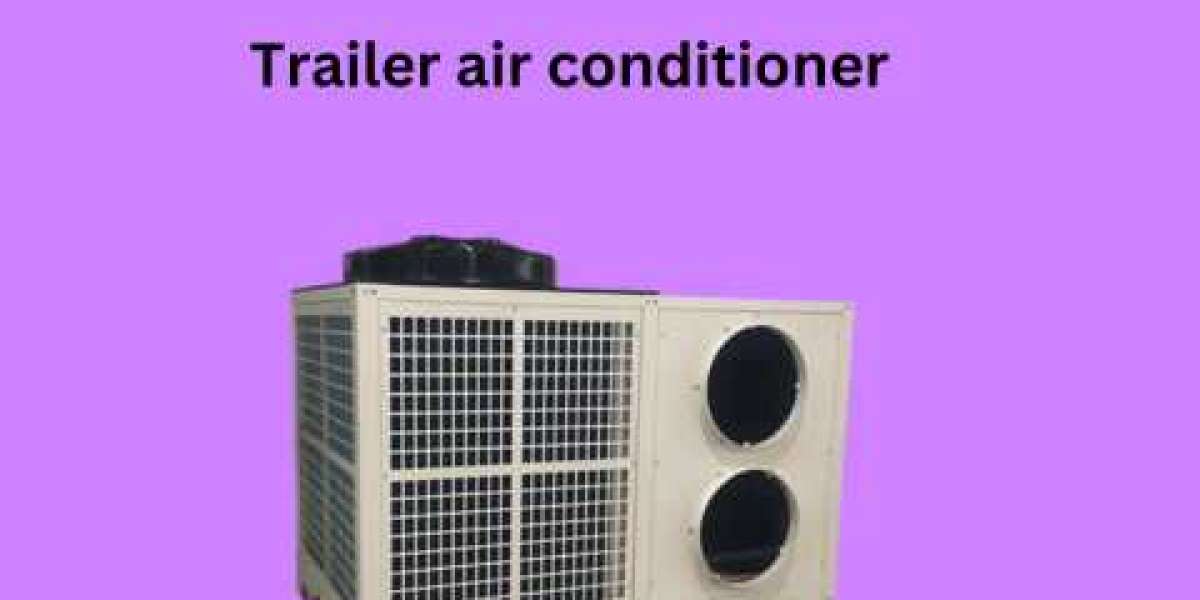For those who spend a lot of time on the road, whether for work or leisure, maintaining a comfortable temperature inside your trailer is crucial. A trailer air conditioner is designed to provide efficient cooling in confined spaces, ensuring that your trailer remains a comfortable retreat no matter where your travels take you. This guide will cover the essential features, benefits, and maintenance tips for trailer air conditioners.
Why a Trailer Air Conditioner is Essential
Traveling in a trailer can expose you to various weather conditions, making temperature control a priority. A trailer air conditioner is built to withstand the unique challenges of cooling small, mobile spaces. Whether you're parked at a campsite or on the move, these units ensure that your living space stays cool and comfortable, enhancing your overall travel experience.
Key Features of a Trailer Air Conditioner
Compact Design: Trailer air conditioners are designed to fit seamlessly into the limited space of a trailer. They are compact, lightweight, and can be installed in various locations, such as the roof or wall of the trailer.
Energy Efficiency: These units are engineered to operate efficiently, using minimal power while providing maximum cooling. This is especially important when you're running on limited power sources, such as a generator or solar panels.
Durability: Built to withstand the rigors of the road, trailer air conditioners are constructed with durable materials that can handle vibration, temperature fluctuations, and other challenges associated with travel.
Quiet Operation: Noise can be a concern in the close quarters of a trailer. Many trailer air conditioners are designed to operate quietly, ensuring that you can enjoy a peaceful environment without constant background noise.
Benefits of Using a Trailer Air Conditioner
Comfort on the Road: A trailer air conditioner keeps your living space cool, allowing you to relax and recharge after a long day of travel. This is particularly important during hot summer months or in warm climates.
Improved Air Quality: In addition to cooling, trailer air conditioners help filter out dust, allergens, and pollutants, ensuring that the air inside your trailer is fresh and clean.
Increased Resale Value: Installing a quality air conditioner can increase the resale value of your trailer, making it a worthwhile investment if you plan to upgrade or sell in the future.
Maintenance Tips for Trailer Air Conditioners
Regular Cleaning: Keep the air filters and coils clean to maintain efficiency and prevent dust buildup. Dirty filters can reduce airflow and strain the unit, leading to higher energy consumption and potential breakdowns.
Check for Leaks: Inspect the unit regularly for any signs of refrigerant leaks or damage to the seals. Addressing these issues early can prevent more serious problems down the road.
Monitor Performance: Pay attention to how well your air conditioner is cooling the trailer. If you notice any decline in performance, it may be time to have it inspected or serviced by a professional.
Proper Storage: If you’re not using your trailer for an extended period, properly store the air conditioner. Cover the unit to protect it from dust and debris, and ensure that all components are dry to prevent mold growth.
Conclusion
A trailer air conditioner is an essential investment for anyone who spends significant time on the road. It provides the comfort and convenience of a climate-controlled environment, no matter where your travels take you. By understanding the key features and benefits, and following proper maintenance practices, you can enjoy a cool and comfortable trailer for years to come. For expert advice and installation services, consult with professionals who specialize in trailer air conditioning systems.







